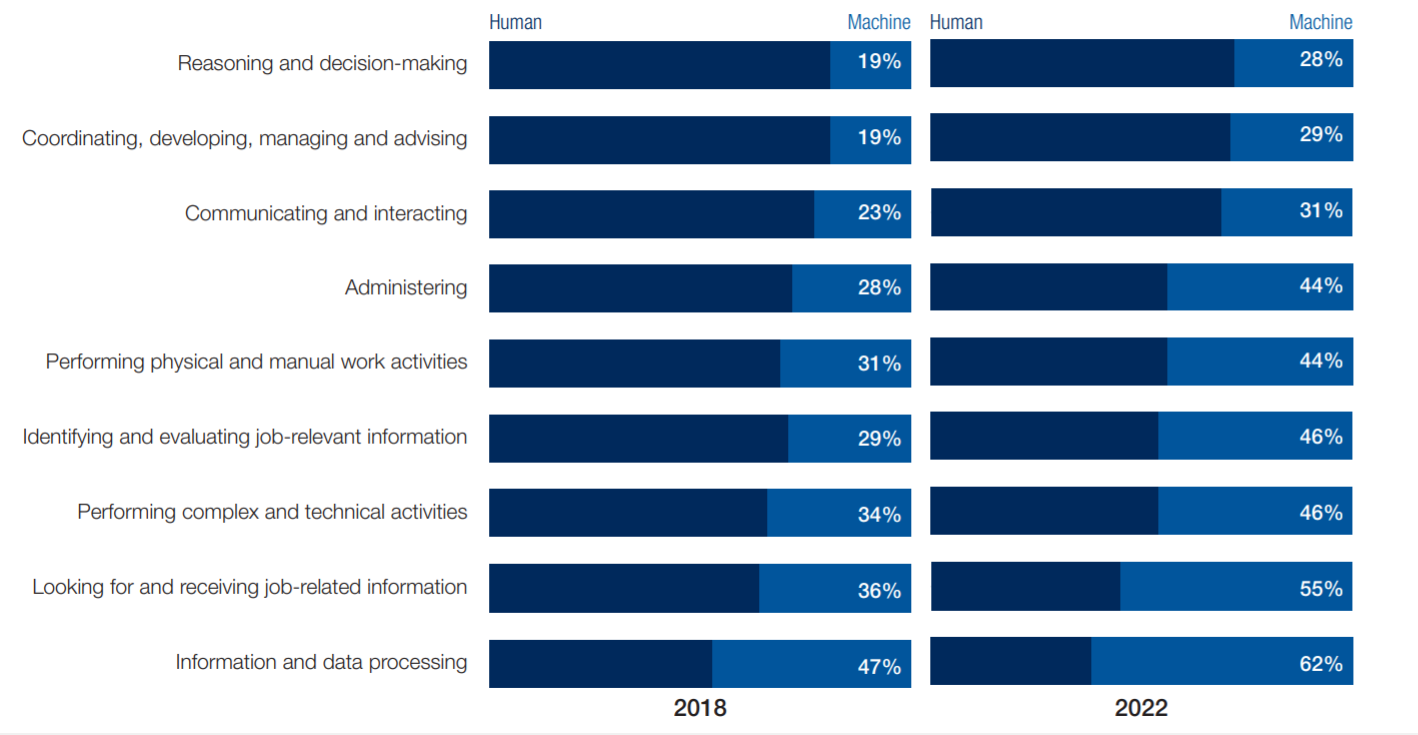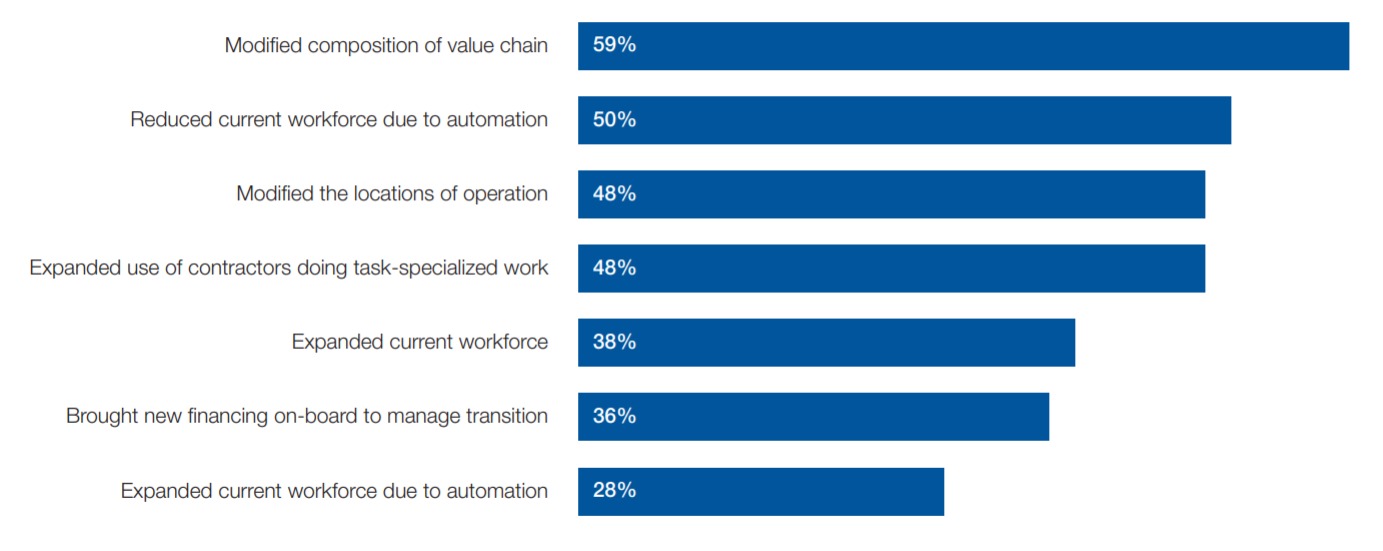
It’s not about job losses, but a shift in employment
There is a justifiable fear that technological change will lead to mass job losses. Some estimates indicate that automation in the workplace will create more roles than it eliminates. A survey cited in the WEF’s 2018 Future of Jobs report suggested that by 2022 automation will create 133m jobs and displace 75m. However, whether technology creates more jobs than it destroys is a moot point when taken against the shift in employment created by technology.

The skills required are rapidly changing
Of course, over the ages, technological advancements have led to changes in the way labour is deployed several times over. We’re currently experiencing the fourth industrial revolution, but a key difference compared to previous shifts is that the current shift is occurring much more rapidly.
Changes in work triggered by past revolutions meant that new labour market entrants had to acquire different skills from their predecessors, with excess and out-of-date skills leaving the market as employees retire. Now, even workers who have relatively recently acquired their skills may find that they are forced to re-skill while still in employment.

Employers should take the lead in re-skilling workers
There’s no question that businesses are recognising the change in the labour market, with 66 percent of large companies surveyed by McKinsey saying that addressing skills gaps caused by automation is a top ten business priority.
Of course, employers can simply opt to rehire, making redundant those workers whose skills are no longer needed. Doing so may be difficult in markets where labour is tightly regulated, but even where dismissing workers is easy it is worth considering the alternative: reskilling existing workers.
Companies that invest the resources in workforce retraining to help their workers adapt to a changing environment stand to gain on several levels:
- Employee retention. Retaining employees can cancel out some of the costs of reskilling while serving as a pillar for corporate culture. Employee retention improves business continuity too.
- Customer satisfaction. Your customers will thank you for the in-depth knowledge that your existing employees have. In contrast, hiring new workers to fill skills gaps imply teething issues that undermine customer satisfaction.
- Improve morale, attract talent. Workers are justifiably concerned about the changes they face and will take a positive view of an employer that invests in their future. Companies will enjoy improved morale amongst existing workers, while standing out as a desirable workplace for those looking for an employer.
Good employers have always invested in the skills of their workers via continuous professional development (CPD) programs, for example. However, the scale of the task ahead is far bigger than before and tweaking skills around the edges won’t bring the desired results.

Partnership is a key element of the reskilling exercise
The wholesale changes underway mean that employers cannot simply run computer literacy, CPD, and other relatively minor upskilling programs. Reskilling must be as wholesale as the change faced by workers, and few companies have the resources to undertake a skill-building operation at that scale.
Instead, companies can partner with a vendor that has the technology know-how to build the smart teams that can support today’s technology-driven working environment. With the help of a partner vendor companies will be able to retain much of their existing workforce while simultaneously ensuring that their workers grow the necessary skills to keep competing in a rapidly changing world of work.
ELEKS can help companies rapidly scale up technology-centric skills, reducing resourcing costs by up to 50%. We’ll help you quickly scale up to meet your goals. Get in touch with us.
Related Insights








The breadth of knowledge and understanding that ELEKS has within its walls allows us to leverage that expertise to make superior deliverables for our customers. When you work with ELEKS, you are working with the top 1% of the aptitude and engineering excellence of the whole country.

Right from the start, we really liked ELEKS’ commitment and engagement. They came to us with their best people to try to understand our context, our business idea, and developed the first prototype with us. They were very professional and very customer oriented. I think, without ELEKS it probably would not have been possible to have such a successful product in such a short period of time.

ELEKS has been involved in the development of a number of our consumer-facing websites and mobile applications that allow our customers to easily track their shipments, get the information they need as well as stay in touch with us. We’ve appreciated the level of ELEKS’ expertise, responsiveness and attention to details.

